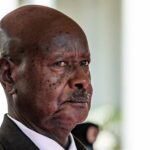Will eSwatini manage to retain the name change? – Thulani Maseko
Published on October 17, 2018 at 10:39 AM by Face of Malawi
Human rights activist Thulani Maseko is challenging King Mswati III’s decision to change the Southern African nation’s name to the Kingdom of eSwatini, calling it unconstitutional and a waste of resources in a country that can scarcely afford it.
When King Mswati III changed his kingdom’s name from Swaziland to eSwatini, his intentions were to purge the remains of colonial power residing in the name and to put an end to the confusion between Swaziland and Switzerland. The king made this change unilaterally, without consulting the country’s citizenry.
The southern African nation has been slow to cement this change, however. Government buildings, currency, street signs and border posts still bear the Swaziland name. Officials say the re-branding is taking time so as to mitigate costs.
“The paperwork, the website, signage on government properties, government agencies, there’s a huge, huge expenditure here. One has got to ask right at the beginning if this is really necessary,” Jeremy Sampson, executive director for Africa at marketing firm Brand Finance, told BBC Capital earlier this year.
The name change has been seen by some as unnecessary and resource intensive. Human rights activist Thulani Maseko has approached the country’s courts to stop the name change, saying it is unconstitutional because the king failed to take the name change through legislative processes and that the resources put towards rebranding could be used for more pressing social issues.
“What law did he use when he changed the name of the country? The name of the country is spelled out in the constitution and the constitution is the supreme law,” Maseko told AFP. “Let us ask ourselves if the king can single-handedly amend the constitution by legal notice.”
According to court papers Maseko asked that the court set aside Legal Notice No. 80 of 2018, which confirmed the name change, and nullify all decisions taken by government in terms of the disputed legal notice.
“Citizen participation in a decision of such significance is at the very heart of democracy and democratic governance, as guaranteed in section 1 of the Constitution,” he says. “What is more, the name eSwatini does not seem to be the original name of the country – kaNgwane is.”
This refers to the siSwati version of the constitution, which frequently refers to the Kingdom of Swaziland as “umbuso waka-Ngwane”.
“We verily believe that the repeal of the 1968 independence constitution was unlawful and unconstitutional. Similarly, the attempt to change the name of the country by declaration finds no support from the 2005 constitution. In as much as His Majesty King Sobhuza II had no power to abrogate the independence constitution by proclamation,” he is quoted as saying by the Mail & Guardian newspaper.
Source : Mail & Guardian newspaper and AfricaNews.



